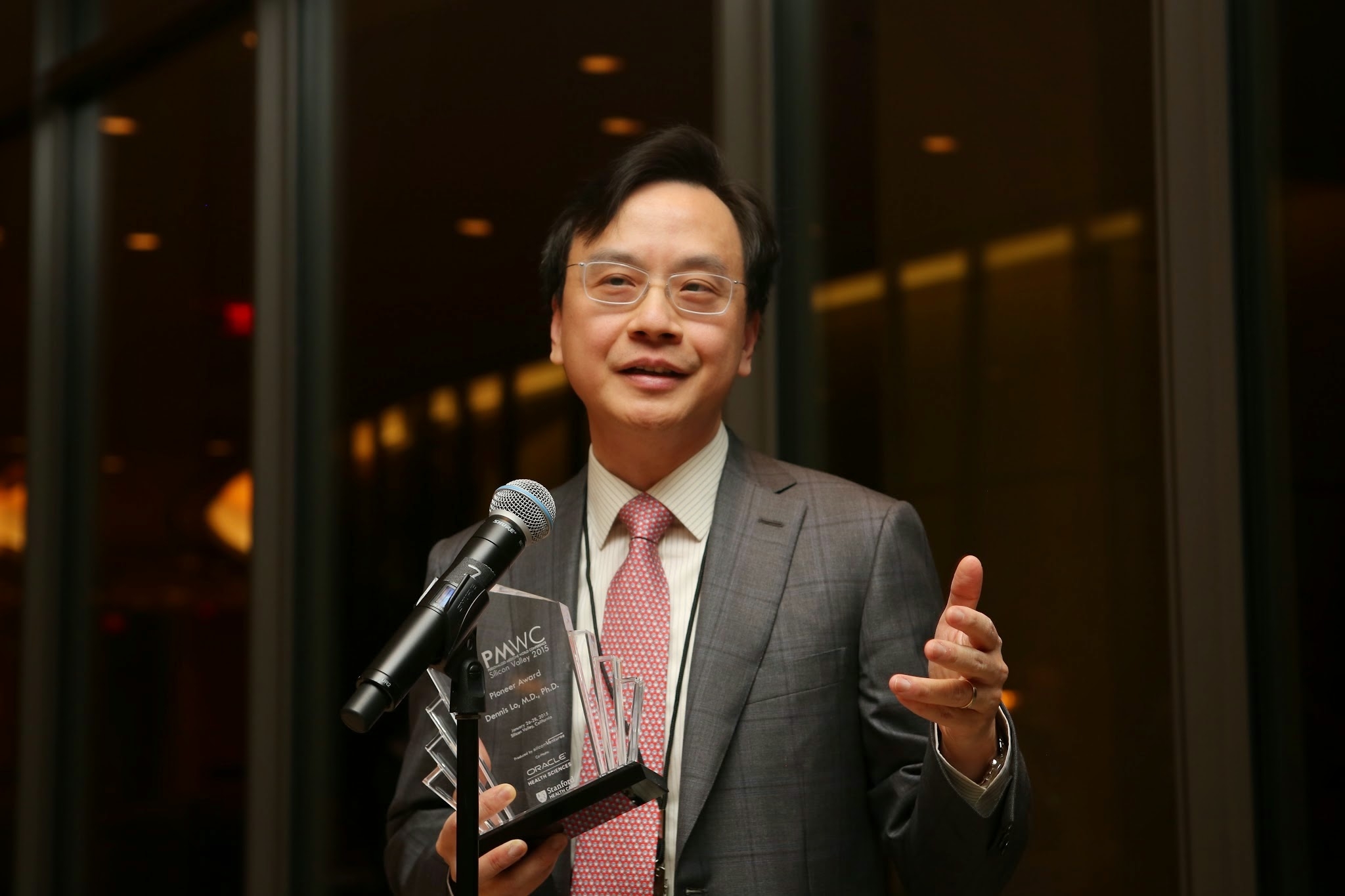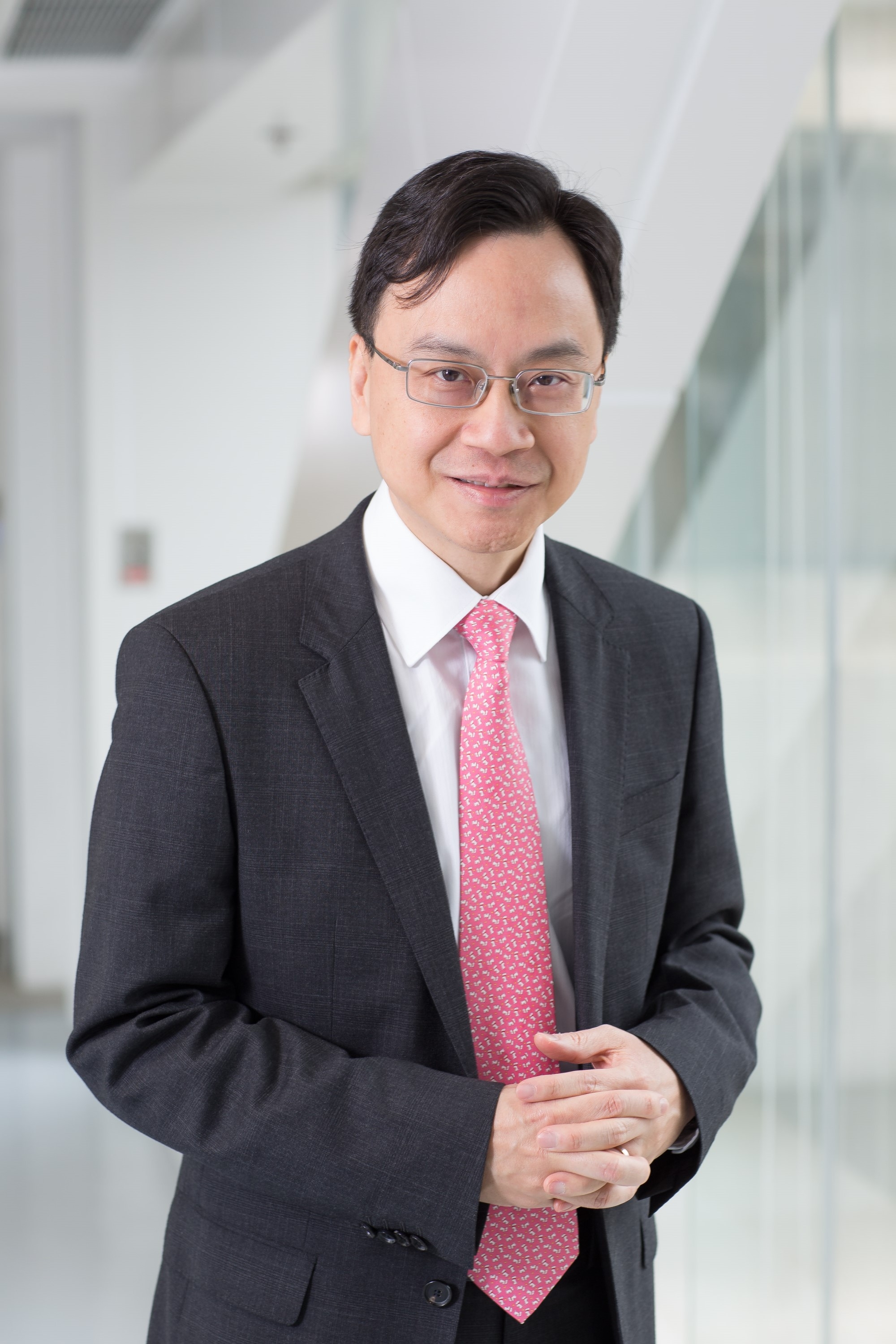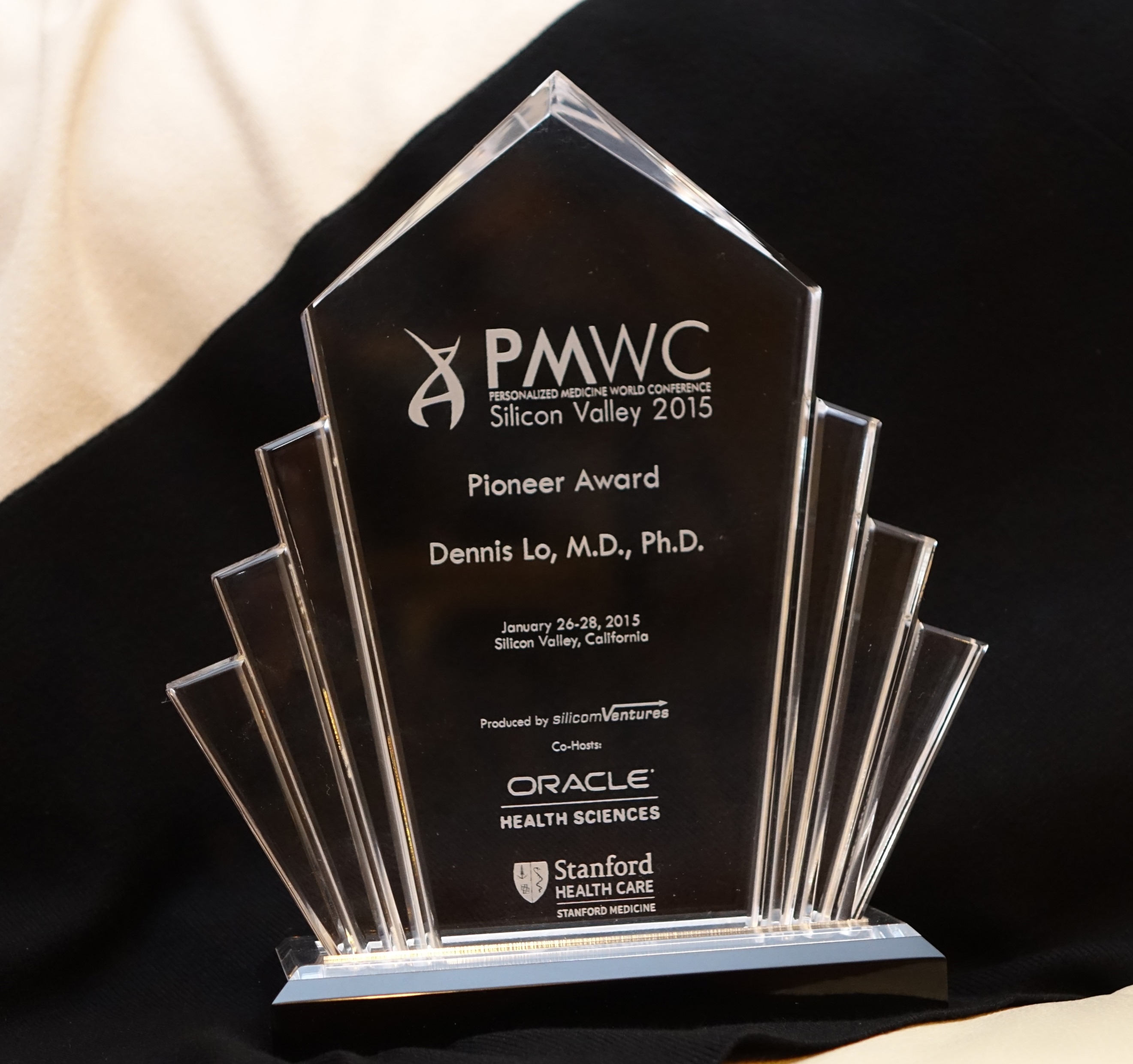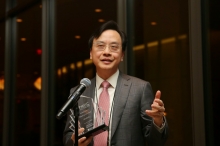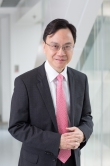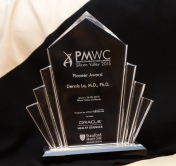CUHK
News Centre
CUHK Professor Dennis Lo Received International Honour for Pioneering Research in Personalized Medicine
Professor Dennis Lo Yuk Ming from The Chinese University of Hong Kong (CUHK) was presented with the Pioneer Award at the Personalized Medicine World Conference 2015, for his pioneering research and remarkable contributions to personalized medicine.
Professor Dennis Lo Yuk Ming, Associate Dean (Research); Chairman of the Department of Chemical Pathology, Faculty of Medicine; and Director of the Li Ka Shing Institute of Health Sciences at CUHK, was the first to discover the presence of cell-free fetal DNA in the plasma of pregnant women. The groundbreaking findings opened up opportunities for non-invasive prenatal testing. Recently, Professor Lo and his research team have achieved another major breakthrough in applying DNA sequencing techniques to cancer detection. This innovative liquid biopsy technology aims to detect cancer-associated mutations and other alterations in blood through genome-wide DNA sequencing, contributing towards early stage cancer diagnosis and hence prompt treatment.
Professor Lo remarked, ‘Given the rapid development of genomics technology, personalized medicine is being a global development in healthcare. I would like to thank my research team and collaborators for their strong support over the years. We will further push forward the technology envelope to provide safe and timely diagnostic solutions for prenatal diagnosis and cancer detection.’
Professor Lo discovered the presence of cell-free fetal DNA in the plasma of pregnant women in 1997. The remarkable findings marked a milestone in genetic medicine. Professor Lo then characterized the fundamental parameters of this phenomenon and developed a number of core technologies that brought non-invasive prenatal diagnosis into reality. In 2011, he introduced a non-invasive prenatal diagnosis for Down syndrome with over 99% accuracy. Pregnant women are only required to take a blood test after 10 weeks of pregnancy, greatly reducing the risk of miscarriage compared to conventional invasive testing methods such as amniocentesis. The technology is now widely used in China, the United States, Europe, totalling over 60 countries, representing one of the most rapidly developing areas of molecular testing. To date, it has been estimated that over a million pregnant women have benefited from this technology.
Professor Lo’s innovative and remarkable research in non-invasive prenatal testing has had a far-reaching impact in the medical and scientific fields. Over the years, he has been honoured with numerous international awards including the King Faisal International Prize for Medicine in 2014, election to the Royal Society and election as a Foreign Associate of the US National Academy of Sciences.
What is Personalized Medicine?
The human genome contains approximately 6 billion DNA bases (with half inherited from each parent) which have a great impact on our health including genomic alterations that would lead to cancer, adverse reactions to drugs, and susceptibility to diseases, etc. Personalized medicine enables physicians to provide patients with customised monitoring and treatment solutions based on their unique situations reflected from DNA sequencing. Such developments allow the timely institution of the most beneficial management plans for a particular patient.
About The Personalized Medicine World Conference and the Pioneer Award
The Personalized Medicine World Conference is an annual event where personalized medicine experts around the world share their innovative researches and insights on future development. The Pioneer Award is given to a rare individual who has presaged the present day excitement regarding personalized medicine with major advances in the field, even at a time when less-evolved technology and less encouragement from peers existed. Last year’s recipient of the award was Prof. Yuet Wai Kan, renowned expert and leader in genetics research. Professor Lo was presented with the award at the conference recently held in Silicon Valley.
Professor Dennis Lo Yuk Ming is presented the Pioneer Award at the Personalized Medicine World Conference 2015 held in Silicon Valley for his discovery of the presence of cell-free fetal DNA in the plasma of pregnant women and pioneering researches on non-invasive prenatal testing.


